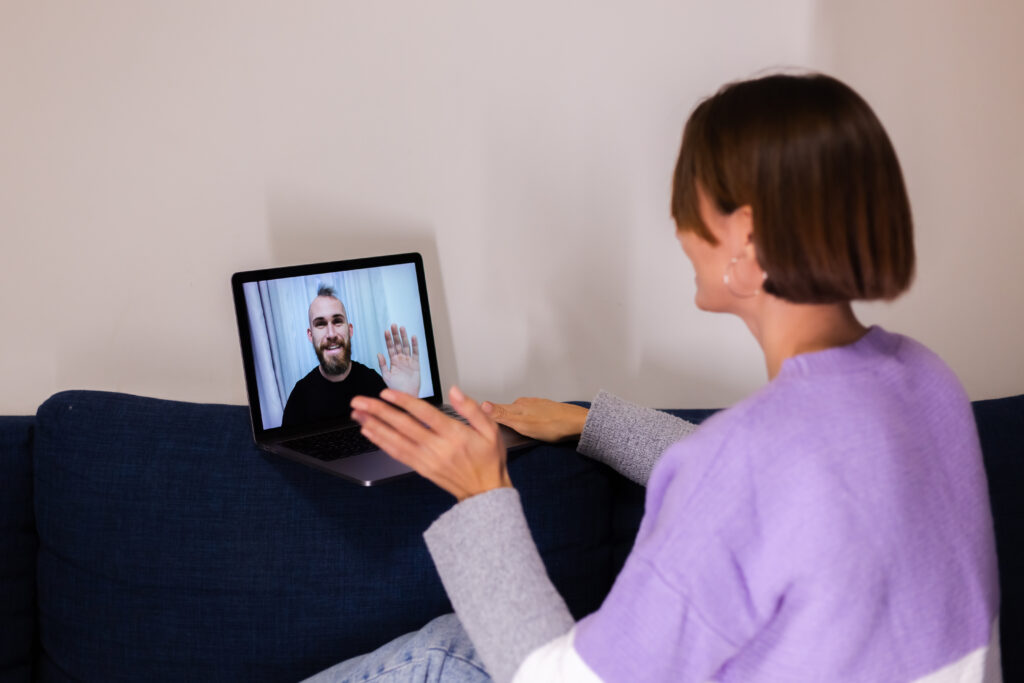In an age where technology permeates every facet of daily life, it’s no surprise that mental health care has evolved to meet people where they are—online. Virtual therapy and online mental health counseling have transformed how individuals access psychological support.
Once considered a niche alternative, these digital services have now become mainstream, offering comfort, convenience, and connection to millions. As mental health continues to gain recognition as a critical part of overall well-being, virtual therapy emerges as a powerful, effective, and accessible solution for individuals from all walks of life.
8 Reasons Why You Should Consider Online Therapy

1. Accessibility and Convenience
One of the most significant advantages of virtual therapy is increased accessibility. Traditional in-person counseling often presents barriers such as transportation, scheduling conflicts, and geographic limitations—especially for individuals in rural or underserved communities. With online counseling, all a person needs is a stable internet connection and a private space. This ease of access allows clients to engage in therapy from the comfort of their own homes, on their lunch break, or even while traveling.
Furthermore, many platforms offer flexible scheduling, including evenings and weekends, which accommodates people with demanding work or family obligations. This flexibility can make therapy a sustainable, long-term commitment rather than a logistical challenge.
2. Expanded Provider Choice
Online therapy expands a person’s options when it comes to choosing a provider. Instead of being limited to therapists within driving distance, clients can connect with licensed professionals across their state or country. This broader selection helps individuals find someone who fits their specific needs, such as cultural competence, specialized expertise, or preferred communication style. It can also be a game-changer for people from marginalized communities who may struggle to find inclusive and affirming care locally.
3. Reduced Stigma and Increased Privacy
Despite growing awareness and education around mental health, stigma still deters many from seeking help. Virtual therapy offers a layer of privacy that in-person sessions may not. There’s no waiting room to navigate, no receptionist to greet, and no risk of running into someone you know. This discretion allows individuals to explore therapy with less fear of judgment, helping them to open up more freely and build trust with their therapist.
4. Cost-Effectiveness
Online counseling can often be more affordable than traditional therapy. Many platforms offer tiered pricing, subscription models, or reduced fees for those with limited income. Additionally, the absence of travel costs and the flexibility to schedule shorter or asynchronous sessions (such as messaging-based therapy) can further reduce the overall expense. Insurance coverage for virtual therapy has also expanded significantly, making it a viable option for more people.
5. Continuity of Care
Life’s unpredictability—whether from illness, relocation, or global events like the COVID-19 pandemic—can disrupt regular in-person therapy. Virtual counseling provides continuity of care by allowing sessions to continue uninterrupted, regardless of physical location. This consistency is vital for therapeutic progress, especially for individuals managing chronic mental health conditions or working through trauma.
6. Comfort and Emotional Safety
Many clients feel more at ease engaging in therapy from a familiar environment. This emotional comfort can encourage more honest conversations and deeper self-reflection. Being in one’s own space can also reduce the sensory and social stress that some experience in clinical settings, especially individuals with anxiety, autism, or sensory processing challenges.
7. Diverse Modes of Communication
Online therapy doesn’t just replicate the in-person experience—it expands it. In addition to live video sessions, many platforms offer text, phone, email, and chat options. This multimodal approach allows clients to choose the format that feels most comfortable and accessible. For example, some may find it easier to articulate thoughts in writing, while others may prefer voice or video interactions.
8. Evidence-Based Effectiveness
Numerous studies support the efficacy of virtual therapy for a wide range of mental health concerns, including depression, anxiety, post-traumatic stress disorder (PTSD), and stress-related disorders. In many cases, online counseling is as effective as face-to-face therapy. Advances in digital platforms have made it possible to deliver cognitive-behavioral therapy (CBT), mindfulness practices, and other evidence-based interventions in accessible, user-friendly formats.
Get Virtual Therapy in Longmeadow, MA

Virtual therapy and online mental health counseling represent a powerful evolution in the way we care for psychological well-being. With benefits ranging from increased accessibility and privacy to flexible communication and proven effectiveness, online therapy is not just a substitute for traditional care—it’s a new frontier.
As more individuals seek support in managing their mental health, the continued growth and innovation of virtual counseling promise a more inclusive and responsive mental health landscape for all.
If you or a loved one is interested in trying virtual therapy, reach out to us today.
You can call us at (888) 617-3070, email us at info@pioneerbh.com, or visit us 24/7 at 175 Dwight Rd, Longmeadow, MA 01106.
Take the first step towards happiness today.

